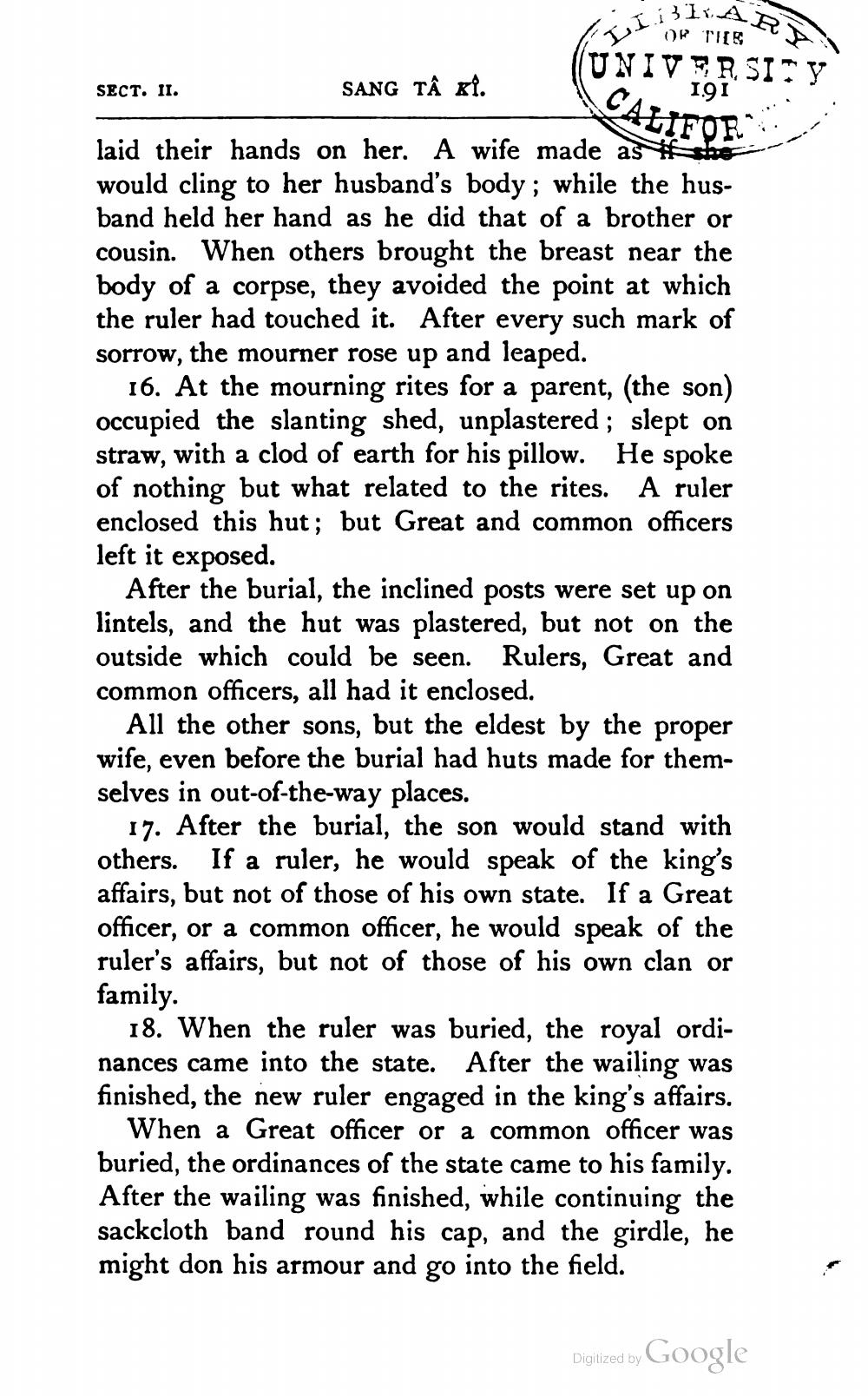________________
ri1A
(UNIVERSITY
SECT. II.
SANG TÂ KI.
CALIFOES
laid their hands on her. A wife made as the would cling to her husband's body; while the husband held her hand as he did that of a brother or cousin. When others brought the breast near the body of a corpse, they avoided the point at which the ruler had touched it. After every such mark of sorrow, the mourner rose up and leaped.
16. At the mourning rites for a parent, (the son) occupied the slanting shed, unplastered ; slept on straw, with a clod of earth for his pillow. He spoke of nothing but what related to the rites. A ruler enclosed this hut; but Great and common officers left it exposed.
After the burial, the inclined posts were set up on lintels, and the hut was plastered, but not on the outside which could be seen. Rulers, Great and common officers, all had it enclosed.
All the other sons, but the eldest by the proper wife, even before the burial had huts made for themselves in out-of-the-way places.
17. After the burial, the son would stand with others. If a ruler, he would speak of the king's affairs, but not of those of his own state. If a Great officer, or a common officer, he would speak of the ruler's affairs, but not of those of his own clan or family.
18. When the ruler was buried, the royal ordinances came into the state. After the wailing was finished, the new ruler engaged in the king's affairs.
When a Great officer or a common officer was buried, the ordinances of the state came to his family. After the wailing was finished, while continuing the sackcloth band round his cap, and the girdle, he might don his armour and go into the field.
Digitized by Google




